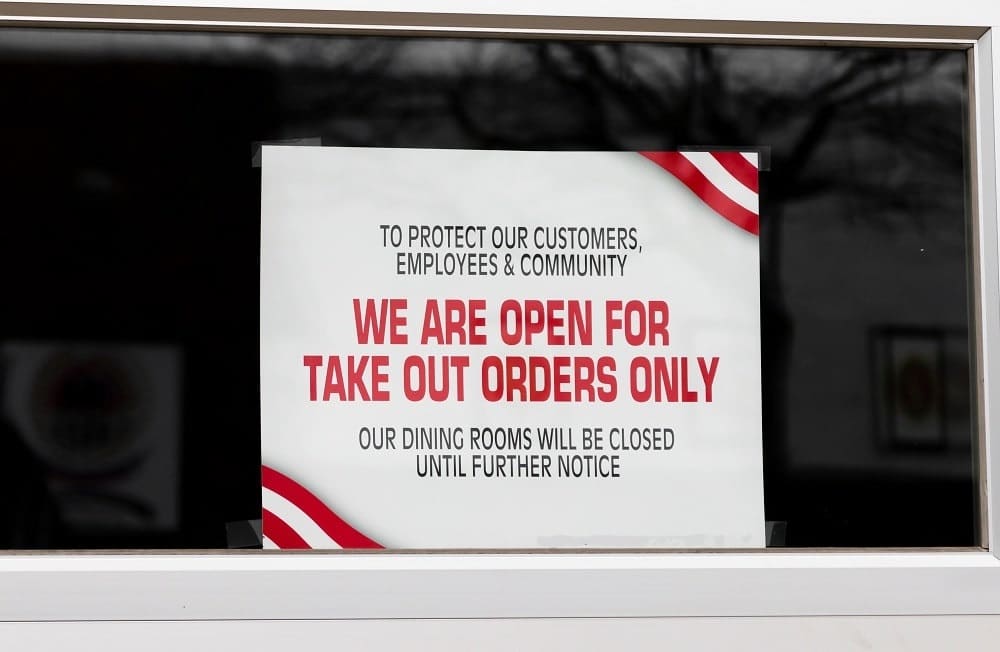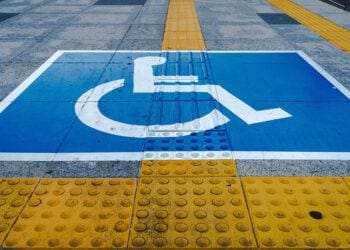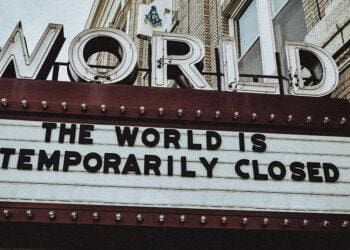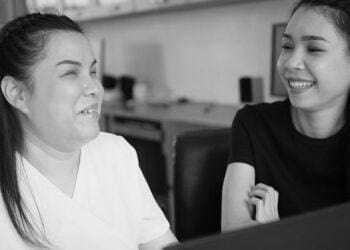Businesses particularly affected by COVID-19 are also the ones most commonly exposed to disability discrimination lawsuits under the ADA. John Kelly, a partner at Wilson Elser, discusses the “new normal” litigators may see in how claims brought under the ADA and the New York State Human Rights Law are litigated.
Public health experts and economists predict a “new normal” for businesses in the wake of COVID-19. While estimates vary, a group of researchers from Harvard Business School recently projected that more than 100,000 small businesses alone will shut down as a result of the pandemic.[1] Many businesses that do not close still may drastically change or temporarily curtail their business operations as they shift to contact-free procedures, such as delivery or curbside pick-up of products or services. Businesses that were heavily impacted by COVID-19, such as restaurants, retail stores, commercial real estate owners and entertainment venues, are the same businesses that often are exposed to disability discrimination lawsuits brought under Title III of the Americans with Disabilities Act (ADA) and analogous state and city laws.
Building owners and operators of businesses, including aforementioned restaurants, retail stores and entertainment venues, should be aware of the impact COVID-19-related business closures could have on existing and future disability discrimination lawsuits. Business closures stemming from the pandemic could alter how and where claims brought under Title III of the ADA and New York State Human Rights Law are litigated. Specifically, business shutdowns could affect the remedies available to plaintiffs, even for claims that arose before the pandemic, and might impact the forum where discrimination claims are decided. On the other hand, even drastic changes to business operations or a partial/temporary closure of a business may not protect against claims brought under Title III of the ADA and the New York State Human Rights Law (NY § Exec. Law 296).
What is Title III of the Americans with Disabilities Act?
Title III of the ADA (42 U.S.C. § 12182(b)(2)(A)(ii) & (iii)) is federal legislation that allows individuals to bring a legal action for discrimination on the basis of disability in places of public accommodation. For example, a disabled litigant in a wheelchair could allege that physical barriers such as a high counter at a bar, the lack of a ramp at the entrance to a movie theater or a narrow aisle in a retail store constitutes a violation of the ADA. The definitions of a disability and a public accommodation are broad, and as a result, there is no shortage of claims in New York for property owners/businesses that do not comply with the ADA guidelines and are subject to the law’s requirements. Section 12182(a) of the ADA imposes the obligation to comply on “any person who owns, leases (or leases to) or operates a place of public accommodation.”
Relief in the form of monetary damages is not permitted when the discrimination claim is based on violations of the ADA alone. Instead, plaintiffs who bring a claim for ADA violations are entitled solely to injunctive relief and reasonable attorney’s fees. As a result, plaintiffs in New York also allege violations of the New York State Human Rights Law and local laws – such as New York City Human Rights Law – in addition to ADA claims, as these nonfederal laws allow a plaintiff to recover monetary and compensatory damages for violations in addition to injunctive relief. Even when the state violations are included as part of the lawsuit, a federal court will adjudicate all claims, as the federal court will exercise supplemental jurisdiction over the state discrimination claims, too.
As discussed below, COVID-19 and the economic disruptions arising out of the pandemic could render ADA claims against certain defendants moot. For example, a claim that was pending in federal court pre-COVID-19 could now be remanded to state court. On the other hand, defendants should be aware that even drastic changes to business operations, such as a business policy to allow a customer into a store’s physical premises, may not absolve businesses from complying with Title III of the ADA and analogous local and city laws.
How will COVID-19 business closures influence ADA litigation?
If a business such as a retail store or restaurant has to close permanently due to the economic downturn or health concerns, a plaintiff will be unable to obtain injunctive relief under the ADA since that plaintiff will be unable to show any real or immediate threat of a repeated injury and therefore has no standing to seek injunctive relief.
Since injunctive relief and attorney fees are the only remedies permitted in ADA lawsuits, even pending ADA claims commenced before the pandemic will become moot against a closed business. As a result, any supplemental claims based on New York State and City law may be remanded to the courts of general jurisdiction (i.e., state court).
Courts have ruled that the closing of a business must be permanent for the injunctive relief claims brought under the ADA to be considered moot. A temporary closing will not be a sufficient basis for a defendant to argue that the ADA claims have become moot. Instead, to invoke this argument, a defendant in an ADA action must show there is no intention of the defendant business to reopen.
Further, a building owner/landlord is jointly and severally liable for ADA compliance and has an independent obligation to comply with the ADA. Therefore, building owners that lose a tenant due to the permanent closing of the tenant’s business still should be cognizant of their obligations under the ADA to the extent the premises continue to operate as a public accommodation after the tenant closes its business and vacates the premises.
Can businesses only offering takeout services or curbside pickup still be liable?
Although this issue does not appear to have been directly litigated post-COVID-19, cases decided before the pandemic suggest that a business that solely offers takeout or curbside pick-up operations still will be considered a place of public accommodation. Courts have consistently held that wholesale and retail stores and establishments dealing with the sale of goods and services are places of public accommodation under federal and New York law. Therefore, if a defendant already was liable for ADA violations, it will not be able to escape liability by merely asserting it no longer serves customers within the business’s physical premises and therefore no longer has to comply with the ADA or New York State Human Rights Law.
Conclusion: How might the ADA landscape change?
Stay tuned for further developments in this field of litigation. Although the exact economic damage of COVID-19 still is being calculated, the economic repercussions seem inevitable and will certainly lead to changes in how and where discrimination claims are litigated. Cases that were once pending in federal court could be remanded to state court. Building owners that are jointly and severally liable under the ADA may become “target defendants” if their co-defendant tenants are forced to close.
On the other hand, though businesses are adapting and changing, the ADA and its broad definitions of “places of public accommodation” are preventing businesses from evading their responsibilities under the ADA. Temporary closings or modifications of business practices that lead to fewer customers in physical premises are not sufficient to shield a business from valid claims brought under ADA and comparable New York State and City laws.
[1] https://www.nber.org/papers/w26989.pdf



 John Kelly is a partner in the Complex Tort and General Liability practice at the law firm
John Kelly is a partner in the Complex Tort and General Liability practice at the law firm 






